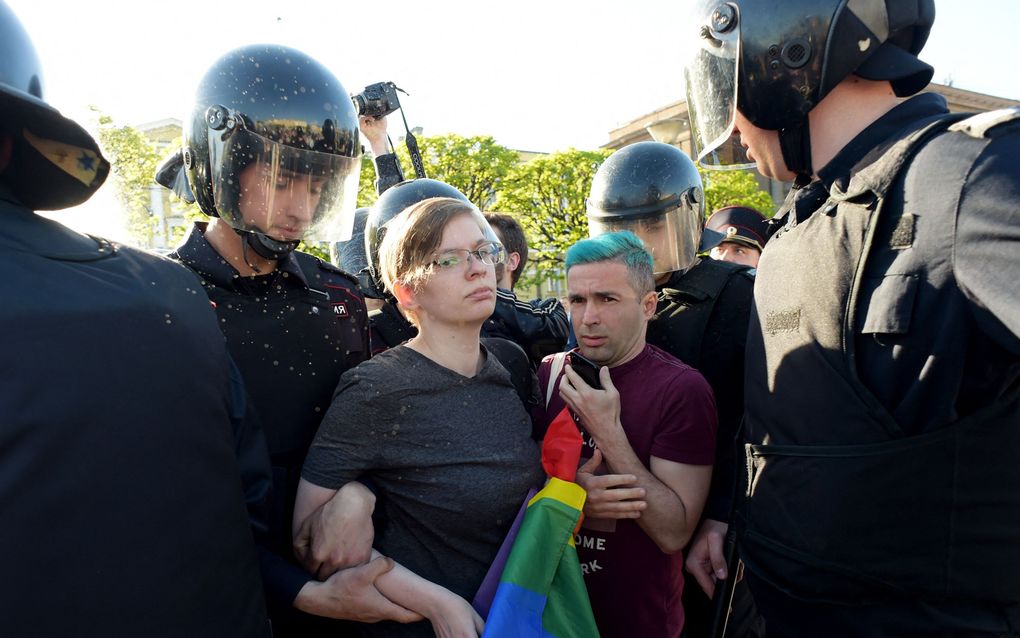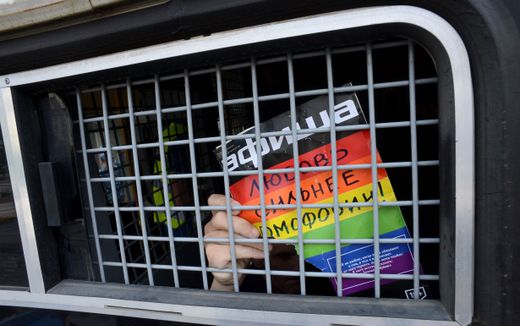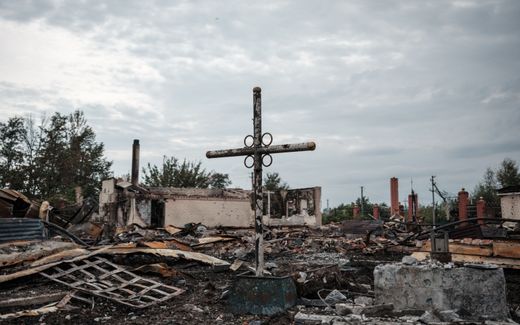Russia prohibits LGBT propaganda

Photo AFP, Olga Maltseva
Eastern Europe
The Russian parliament passed a law prohibiting the dissemination of information about homosexuality and bisexuality. It has been illegal in Russia to share this information with children for almost a decade. Parliament has extended this 2013 'gay propaganda law' to all ages.
"Propaganda on non-traditional sexual relations is prohibited. The solution will protect our children and the country's future from the darkness spread by the United States and European states. We have our own traditions and values", stated Chairman of the State Duma Vyacheslav Volodin. This reports the Russian daily Kommersant.
Anyone who does or shares anything that is seen as "promoting" information about LGBT risks a fine of over 6,000 euros. This applies to expressions through television, books, advertisements and online. For organisations and companies, the fine can reach up to €80,000. Foreigners risk detention for 15 days. They can also be expelled from the country.
Russian parliamentarians present the law as a way to protect their country from "un-Russian" norms and values, which they say are promoted by the West. For example, parliamentarian Aleksandr Chinshtejn, one of the law's architects, calls LGBT issues "an element of hybrid warfare. In this hybrid war, we must protect our values, society and our children".
EU
Incidentally, there are also countries in the European Union where laws and resolutions similar to Russia's 'gay propaganda law' have been introduced in recent years. In Hungary, for instance, sexual and gender diversity has been banned from 'promoting' sexual and gender diversity among minors since 2021.
In Poland, 100 municipalities declared themselves 'LGBT-free' via resolutions, which meant no 'LGBT ideology' could be spread. Four of the five provinces withdrew these resolutions last year under pressure from the EU.
Moral values
As CNE reported earlier, Russian President Vladimir Putin signed a decree "On the Foundations of State Policy for the Preservation and Strengthening of Traditional Russian Spiritual and Moral Values" on November 9th. The document notes that traditional values should be understood as "moral guidelines passed down from generation to generation and underlie the all-Russian civic identity."
These in the decree include life, dignity, human rights and freedoms, patriotism, citizenship, service to the Fatherland and responsibility for its destiny, high moral ideals, a strong family, creative work, the priority of the spiritual over the material, humanism, mercy, justice, collectivism, mutual assistance and mutual respect, historical memory and continuity of generations, as well as the unity of the peoples of Russia.
Related Articles






